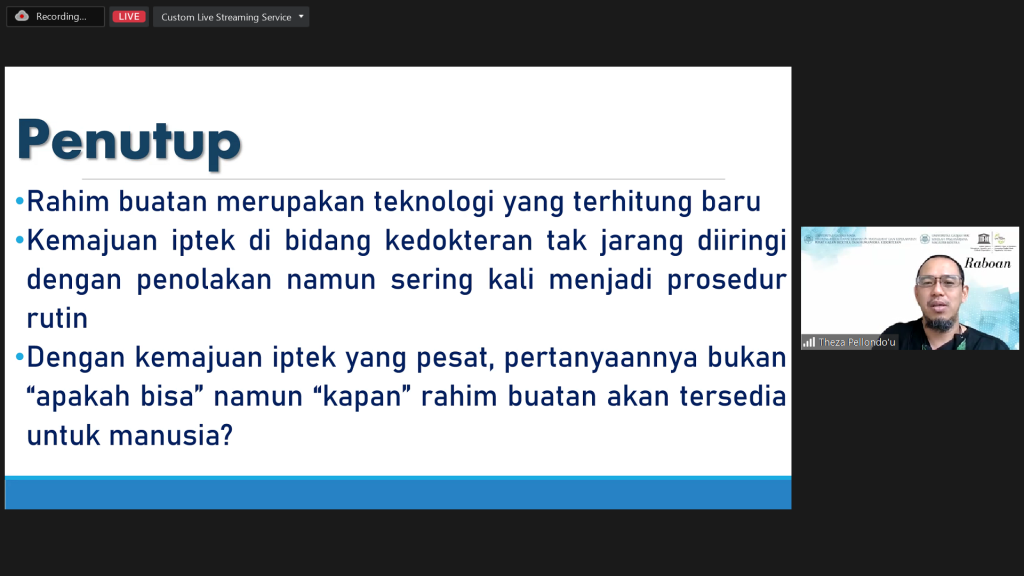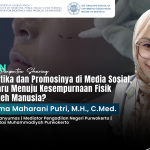
On Wednesday (18/1), the Center for Medical Bioethics and Humanities held the Raboan Discussion Forum. The topic discussed was the Ethical Perspective on Artificial Womb. The speaker for this discussion was Dr. Theza Elizianno Andrew Pellondo’u, Sp.KF, and it was moderated by Dr. Tiea Khatija.
DNA & RNA are chemical molecules that have the property of self-replication. Cells have the inherent instinct to reproduce themselves through mitosis or meiosis.
Effects of science and technology developments in medicine:
- Improved accuracy of MRI and CT scans
- CSISPR
- 3d printing
The development of science and technology in reproduction:
- Section Caesarea
- IVF
- Sperm/ovum/embryo storage
- Surrogate mother
- Baby Incubator
- Clone
- Stem Cells
IVF/IVF has helped many couples who have difficulty having children. Artificial uterus is a tool to accommodate the womb outside the uterus so that it can develop normally.
The Ways of Artificial Womb working:
- The artificial womb is placed in a vessel filled with circulating artificial amniotic fluid.
- The umbilical cord is connected to a tube to supply oxygen and nutrients while removing carbon dioxide and other metabolic waste.
- The hose is connected to a blood pump and filtration device.
Limitations of the artificial uterus: Currently, it is only feasible for fetuses with a strong heart capable of pumping blood throughout the body and blood vessels that are large enough to accommodate a catheter.
Advantages of an artificial uterus:
- Reduce infant mortality caused by premature birth.
- Reduce abortion rates for maternal indications.
- Eliminate the practice of surrogate motherhood.
- Anyone can have biological offspring, for example, women with uterine problems or gay partners.
- Embryo development can be directly observed.
Disadvantages of Artificial Uterus:
- Depends on electricity, filters, artificial materials.
- Limited
- Expensive
Ethical Aspect :
- Respect for Autonomy: Embryo transfers must have the patient’s consent and respect the patient’s rights.
- Justice: Not everyone can access the health procedures/measures they need. Patients are free to determine their rights to have or not have children.
- Beneficence: Protecting human life and prioritizing patient health.
- Non-maleficence: It will be fulfilled if it is practiced perfectly. Doctors need to be careful when applying new, untested methods.
Writer: Safirra Afifah Firanka
Watch full video here





